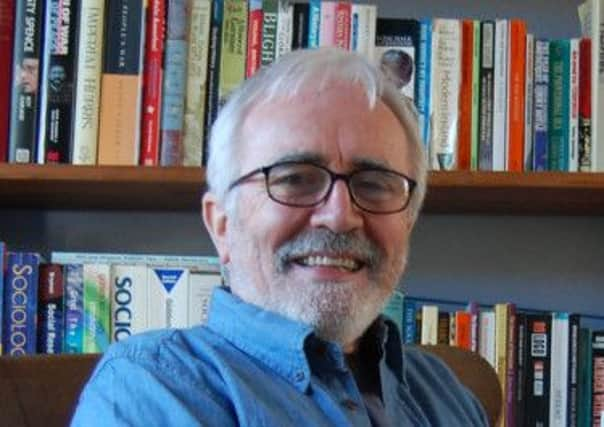Forgiveness is being non-judgmental


He was an easy preacher to listen to: challenging and thought provoking, with a most unusual approach: it was all about changing, growing, what the life of faith should be focusing on.
Two things stick out in my mind about the sermon. Jamie suggested that most people (and Christian people are no exception, he argued) live their lives in a rut. He described a rut as a shallow grave. I liked that one.
Advertisement
Hide AdAdvertisement
Hide AdThe second thing was that at the end of that evening he reflected on the importance of forgiveness, encouraging us to look around that place for a couple of minutes and see if there was someone there against whom we harboured a grudge. Now was the time to deal with that old issue, forgive and move on.
So I looked around and when no one sprang to mind, I thought I might close my eyes and give the matter some serious consideration. Surely there’s somebody who has done something to me, or said something to annoy me, someone I can forgive so that I can feel better about myself.
Just then I felt a gentle tap on my shoulder, and when I looked up there was a lady at the head of a queue that stretched halfway down Holywood Road. I exaggerate for effect, but only a little: there might have been five or six folks, all gently and lovingly pouring their vitriol all over me with reference to hurts I had inflicted, intentionally or otherwise. I was an insensitive lump, only speaking to them when I wanted them to do something for me. And they all forgave me.
But my point is: there sat I, feeling maybe a little self righteous because there was no unforgiveness in my heart, while all these people had reason to dislike me. As I thought about it, it occurred to me that the reason they did not cause me offence was that I got in first.
Advertisement
Hide AdAdvertisement
Hide AdI had coffee with a good old friend the other day and as we were discussing such things as these he stopped and asked me: ‘What is forgiveness?’
I guess I spluttered a little in my coffee, for I thought everybody knows what forgiveness is, but he interrupted my splutter and gave me his definition. ‘Forgiveness’, he said, ‘is living in a constant state of being non-judgmental.’
Do you know? I think he was right, for when you forgive another you can feel morally superior.‘You deserve my wrath, but I will rise above it’.
He was saying that it’s not a matter of refusing to punish individual, identifiable wrongs. He was talking about a way of life, the cultivation of an attitude to life and the behaviour of those around us that does not involve criticism, or weighing their lifestyle against our benchmark, or against what we perceive to be God’s benchmark.
Advertisement
Hide AdAdvertisement
Hide AdWhen you think about it, isn’t it hard not to be self righteous and hypocritical when you’re predisposed to measuring the conduct of others, comparing them to ourselves?
That is worth thinking about. What do you think? Tell me at adamharbinson@gmailcom